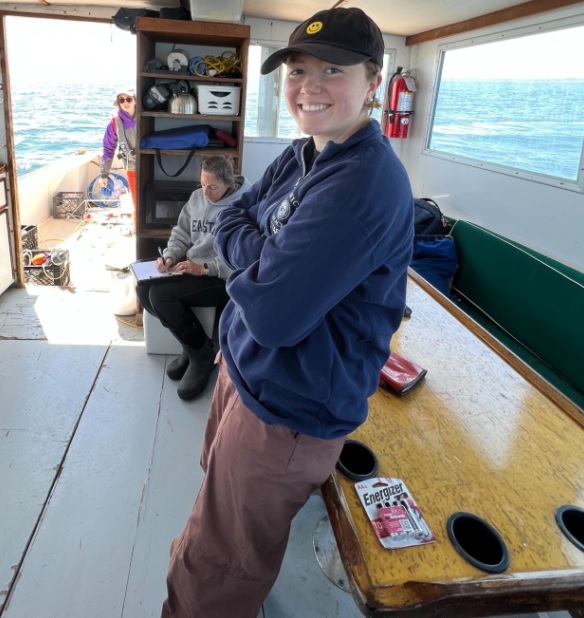Massachusetts Maritime Academy Student Co-Authors Polar Marine Ecosystem Research Published in Prestigious Journal

Summary
Full Article
Massachusetts Maritime Academy student McCaela Acord has co-authored a peer-reviewed research article published in the Journal of Phycology by the Phycological Society of America, marking a significant achievement in undergraduate research contributions to marine science. The study, titled "Exploring the Phaeosphere: Characterizing the microbiomes of Phaeocystis antarctica colonies from the coastal Southern Ocean and laboratory culture," represents important advancements in understanding polar marine ecosystems.
The 13-page research paper examines the bacterial communities associated with Phaeocystis antarctica, a crucial phytoplankton species in the Southern Ocean that plays a vital role in global carbon cycling and marine food webs. By comparing microbiomes from natural colonies collected from the coastal Southern Ocean with those developed in laboratory cultures over time, the research provides insights into how these microscopic relationships function in different environments. This comparative approach helps scientists understand how marine ecosystems adapt when removed from their natural habitats, which has implications for climate change research and conservation efforts.
Acord, a senior in the Marine Science, Safety, and Environmental Protection program from Sandwich, Massachusetts, contributed to the 11-author study through her work at the Woods Hole Oceanographic Institution, one of the world's leading independent oceanographic research organizations. Her involvement in this research demonstrates the quality of undergraduate education and research opportunities available through Massachusetts Maritime Academy's partnerships with premier scientific institutions.
Dr. Heather Burton, MSSEP Department Chair at Massachusetts Maritime Academy, emphasized the significance of Acord's achievement, noting that it reflects the caliber of students at the institution and exemplifies the power of experiential learning. The research collaboration between academic institutions and research organizations like Woods Hole Oceanographic Institution provides valuable opportunities for students to contribute to meaningful scientific advancement while developing practical research skills.
James McKenna, dean of Undergraduate Studies at the Academy, highlighted how Acord's accomplishment demonstrates the collaborative opportunities Massachusetts Maritime Academy fosters with leading research institutions. The publication in the Journal of Phycology, a respected scientific publication by the Phycological Society of America, adds credibility to the research findings and underscores the importance of undergraduate contributions to professional scientific discourse.
The study's focus on polar marine ecosystems comes at a critical time when climate change is rapidly affecting these sensitive environments. Understanding the complex relationships between phytoplankton and their associated bacterial communities provides essential baseline data for monitoring ecosystem health and predicting how these systems might respond to environmental changes. Research like this contributes to broader scientific efforts to understand and protect marine biodiversity in the face of global environmental challenges.
For the marine science community, this publication represents another step forward in understanding the microscopic interactions that drive ocean ecosystems. The research methodology comparing natural and laboratory environments offers valuable insights for future studies examining how marine organisms adapt to changing conditions, which has implications for conservation strategies and climate change mitigation efforts worldwide.

This story is based on an article that was registered on the blockchain. The original source content used for this article is located at citybiz
Article Control ID: 223401